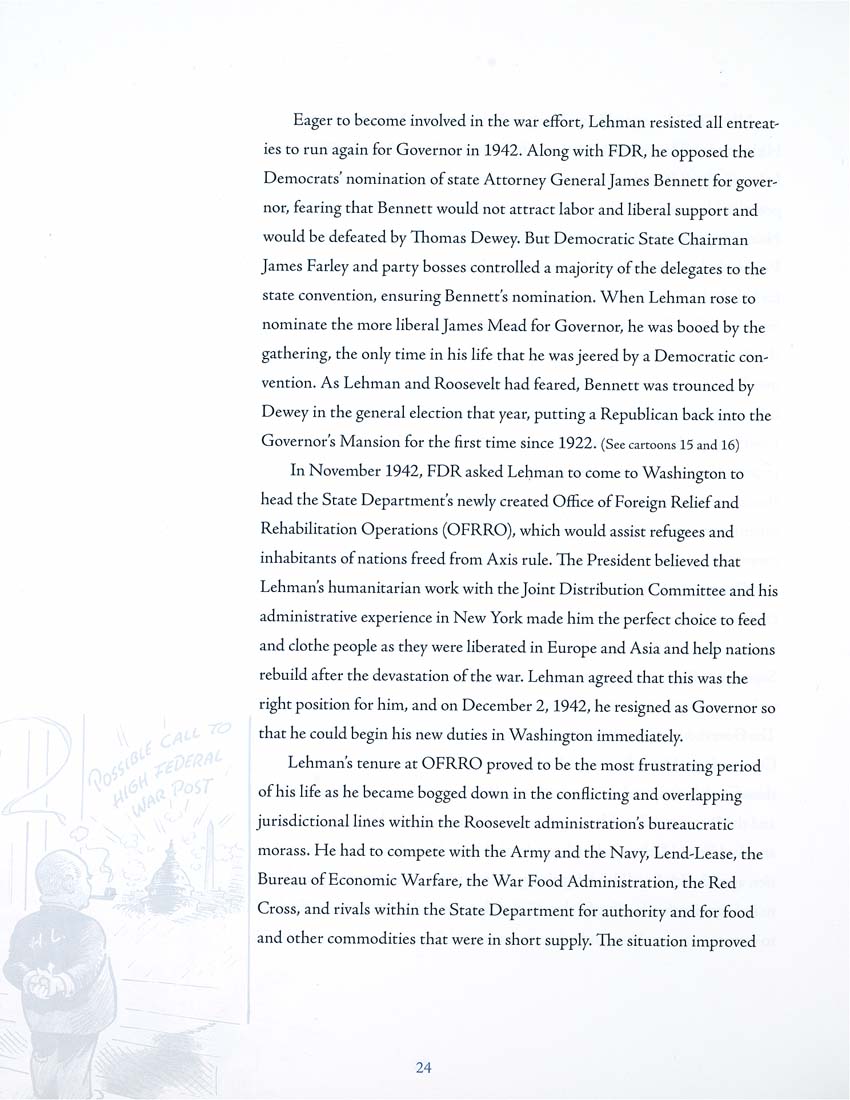Eager to become involved in the war effort, Lehman resisted all entreat¬
ies to run again for Governor in 1942. Along with FDR, he opposed the
Democrats' nomination of state Attorney General James Bennett for gover¬
nor, fearing that Bennett would not attract labor and liberal support and
would be defeated by Thomas Dewey. But Democratic State Chairman
James Farley and party bosses controlled a majority of the delegates to the
state convention, ensuring Bennett's nomination. When Lehman rose to
nominate the more liberal James Mead for Governor, he was booed by the
gathering, the only time in his life that he was jeered by a Democratic con¬
vention. As Lehman and Roosevelt had feared, Bennett was trounced by
Dewey in the general election that year, putting a Republican back into the
Governor's Mansion for the first time since 1922. (Sec cartoons 15 and 16)
In November 1942, FDR asked Lehman to come to Washington to
head the State Department's newly created Office of Foreign Relief and
Rehabilitation Operations (OFRRO), which would assist refugees and
inhabitants of nations freed from Axis rule. The President believed that
Lehman's humanitarian work with the Joint Distribution Committee and his
administrative experience in New York made him the perfect choice to feed
and clothe people as they were liberated in Europe and Asia and help nations
rebuild after the devastation of the war. Lehman agreed that this was the
right position for him, and on December 2, 1942, he resigned as Governor so
^\ / C^''^ "^^ '^^^'^ ^^ could begin his new duties in Washington immediately.
,d" -r-#i?=fi^"'' Lehman's tenure at OFRRO proved to be the most frustrating period
I
of his life as he became bogged down in the conflicting and overlapping
jurisdictional lines within the Roosevelt administration's bureaucratic
morass. He had to compete with the Army and the Navy, Lend-Lease, the
Bureau of Economic Warfare, the War Food Administration, the Red
Cross, and rivals within the State Department for authority and for food
and other commodities that were in short supply. The situation improved
|








